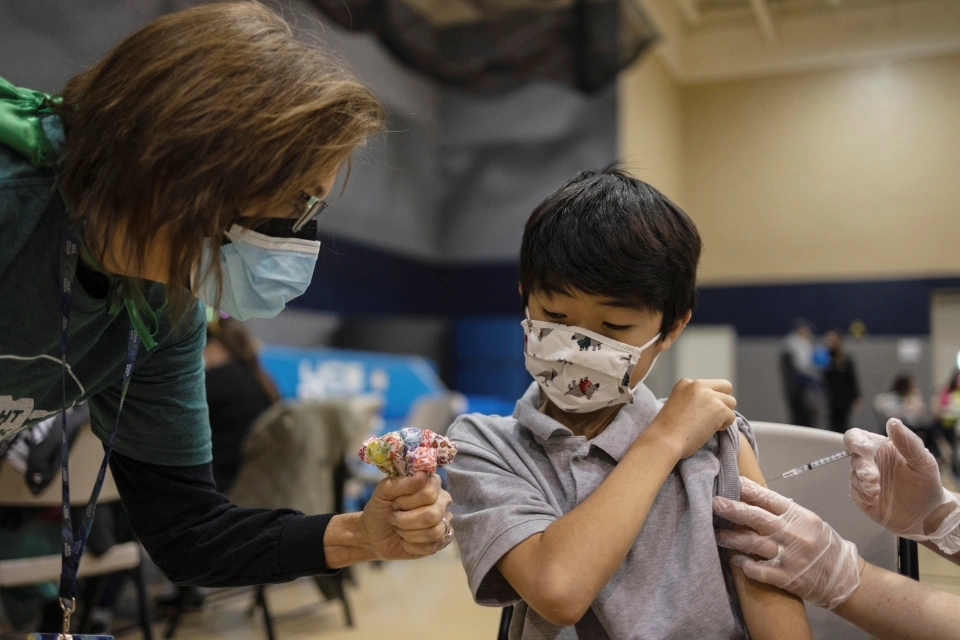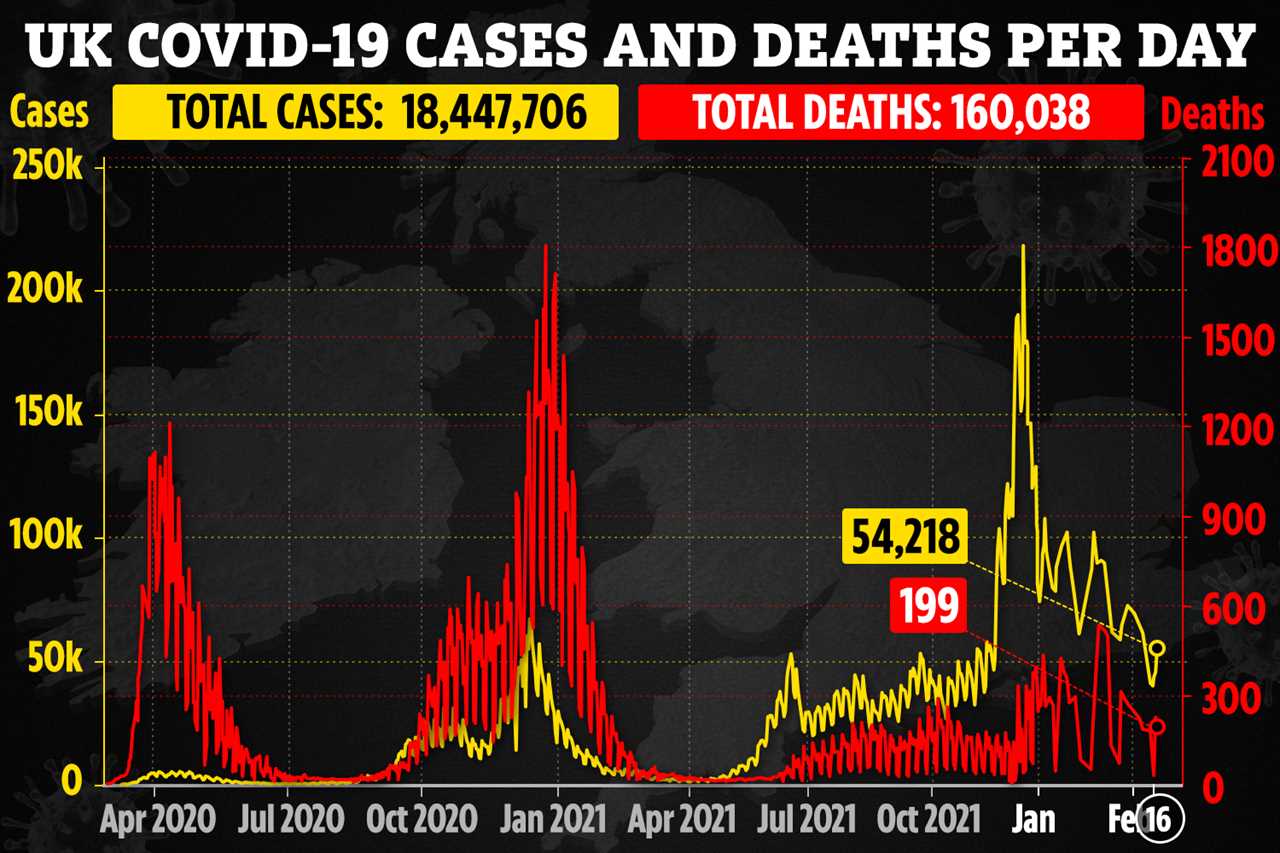KIDS as young as five will finally be offered the Covid shot from April as the vaccines watchdog approved the jab this afternoon.
But with the benefits of being immunised finely balanced in younger children, experts are offering it as an option rather than urging kids to get jabbed.

Instead the Joint Committee on Vaccination and Immunisation will give just under six million kids aged five to 11 a “non-urgent offer”.
This means, while it is a recommended vaccine, it is down to families to decide whether they want to have their children jabbed.
This age group is at low risk of serious illness from Covid, with a very small number of infected kids going on to develop severe disease.
It is also thought more than 85 per cent of five to 11 year olds will have already had a Covid infection, and therefore will have some immunity.
But the latest evidence found dishing out doses now – before any other potential wave – would give some extra protection for the future.
Health Secretary Sajid Javid said: “I have accepted the advice from the independent Joint Committee on Vaccination and Immunisation (JCVI) to make a non-urgent offer of Covid-19 vaccines to all children aged five to 11 in England.
“The NHS is already offering vaccines to at-risk children and those who live with immunosuppressed people in this age group.
“The JCVI advice follows a thorough review by our independent medicines regulator, the MHRA, which approved Pfizer’s paediatric vaccine as safe and effective for children aged five to 11.
“Children without underlying health conditions are at low risk of serious illness from COVID-19 and the priority remains for the NHS to offer vaccines and boosters to adults and vulnerable young people, as well as to catch-up with other childhood immunisation programmes.
“The NHS will prepare to extend this non-urgent offer to all children during April so parents can, if they want, take up the offer to increase protection against potential future waves of COVID-19 as we learn to live with this virus.”
Children will get two doses of a smaller amount of vaccine, with a gap of at least 12 weeks between each injection.
Parents should wait to be contacted before bringing their child forward, or for more information on exactly when this rollout will begin.
Professor Wei Shen Lim, Chair of COVID-19 immunisation on the JCVI, said: “The Committee has carefully considered the potential direct health impacts of vaccination and potential indirect educational impacts.

“The main purpose of offering vaccination to 5-11 year olds is to increase their protection against severe illness in advance of a potential future wave of Covid-19.
“Other important childhood vaccinations, such as MMR and HPV, have fallen behind due to the pandemic. It is vital these programmes continue and are not displaced by the rollout of the Covid-19 vaccine to this age group.”
It comes after the Joint Committee on Vaccination and Immunisation said in December they believe Pfizer’s vaccines to be safe for youngsters.
But the experts stopped short of recommending jabs for all five to 11-year-olds at the time – saying only the clinically vulnerable and those who are a household contact of someone who is immunosuppressed would be eligible.
The latest data found children over five years old saw the same levels of antibodies as teens over 16, post vaccination.
They also saw less side effects from their jabs than adults, with experts urging parents the vaccine is safe for younger kids.
BOOST UP
For adults, a booster shot is the best protection against Omicron, slashing the risk of serious illness and hospitalisation.
Dr June Raine, Chief Executive, said: “Parents and carers can be reassured that no new vaccine for children would have been approved unless the expected standards of safety, quality and effectiveness have been met.
“We have concluded that the Pfizer/BioNTech Covid-19 vaccine is safe and effective for 5 to 11-year-olds, with no new safety concerns identified.
“We have carefully considered all the available data and reached the decision that there is robust evidence to support a positive benefit risk for children in this age group.”
Dr Jyotsna Vohra, Director of Policy and Public Affairs at RSPH said: “RSPH welcomes the announcements from Wales and Scotland that the Covid-19 vaccination roll-out will be extended to all children aged 5-11 years old, not just those who are clinically vulnerable or in contact with immunosuppressed individuals. This follows the growing body of evidence that the vaccine is effective and safe for this age group.
“Covid-19 infections in young children are unlikely to be severe, however they are contributing to community transmission and are disrupting primary education schooling for the second year in a row at a time when children need to be catching up on time lost.”






